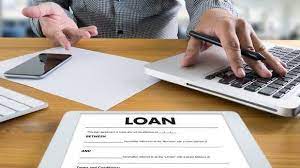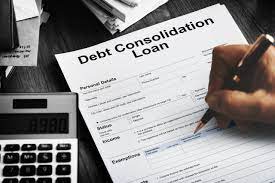Hello!
Dealing with mounting debt is stressful, particularly if you have damaged credit as well. A debt consolidation loan could help you get your payments under control, but is it a wise move? Here’s how to decide.
What Is Debt Consolidation?
 Consolidating debt is the process of combining multiple unsecured debts from credit cards, high-interest loans, and lines of credit into one payment of the same amount each month, as opposed to multiple debt payments of varying amounts.
Consolidating debt is the process of combining multiple unsecured debts from credit cards, high-interest loans, and lines of credit into one payment of the same amount each month, as opposed to multiple debt payments of varying amounts.
The strategy may lower your interest rate, which can help you save money on interest, lower your monthly payment, and pay down debt quicker. You also may be able to improve your credit utilization rate — which may help boost your credit scores.
Should you get a loan for debt consolidation for bad credit? Well, it mainly depends on whether you can find one with an interest rate that’s lower than the aggregate rate you’re paying on your existing debt. Otherwise, the move is probably not a good one.
What Credit Scores Do I Need?
 If you have a score of 579 or less, that’s usually considered poor in the FICO 8 and FICO 9 scoring models and can make it tough for you to get any debt loan, let alone one with agreeable terms.
If you have a score of 579 or less, that’s usually considered poor in the FICO 8 and FICO 9 scoring models and can make it tough for you to get any debt loan, let alone one with agreeable terms.
Be mindful, however, lenders often consider other factors when making loan decisions, including your employment history and income.
What Are The Roadblocks?
Your first challenge may be getting approved. Some lenders won’t do business with you. But if your credit history is up to par, and you have a good debt-to-income ratio, you still have hope. Note, though, that if you win lender approval despite credit issues, you may get higher interest rates than you would if your credit were better.
Here’s A Plan To Better Your Chances
Check out your credit. Before you begin doing research to find a loan that works for you, examine your credit reports. Knowing what your scores are will give you a better idea of which loans you’ll have a shot at getting.
 Scouring your reports could also turn up errors that, if fixed, might even increase your scores.
Scouring your reports could also turn up errors that, if fixed, might even increase your scores.
Comparison shop. Once you know what your credit looks like, you can compare the terms offered by multiple lenders. It’s helpful to get quotes to help you understand your options.
Getting prequalified can also help you understand your likelihood of snagging a particular loan and provide insights into the lender’s requirements. Note that prequalification requires only a “soft” inquiry that won’t hit your credit.
Broaden your search. If you have bad credit, you’ll need to look high and low for the best loan terms. Don’t rule out any potential lenders before you check it out.
 You may find more flexibility with credit unions, which tend to focus more on their members than a traditional lender might. If you’ve been with one while, it may cut you slack despite your poor credit. You also may be able to identify online lenders that work with borrowers who have struggled with credit.
You may find more flexibility with credit unions, which tend to focus more on their members than a traditional lender might. If you’ve been with one while, it may cut you slack despite your poor credit. You also may be able to identify online lenders that work with borrowers who have struggled with credit.
Consider a co-signer. You may want to consider asking a relative or friend with good credit to co-sign your loan. Getting one could markedly improve your odds — and your interest rate.
However, the move is risky. If, for whatever reason, you are unable to repay your loan, your co-signer is on the hook. Naturally, that could cost you a relationship.
So, should you get a debt consolidation loan for bad credit? Do your research, examine your credit, and crunch all the numbers. Debt consolidation is a good strategy for many. This will help you figure out if it’s right for you.
Also read:
- What is Brand Bidding and Why you Need it to Take Advantage of your Competitors’ Authority
- OutSystems – Driving Your Business Forward with no Limits
- How to Make Money on Etsy
Thank you!
Join us on social media!
See you!






